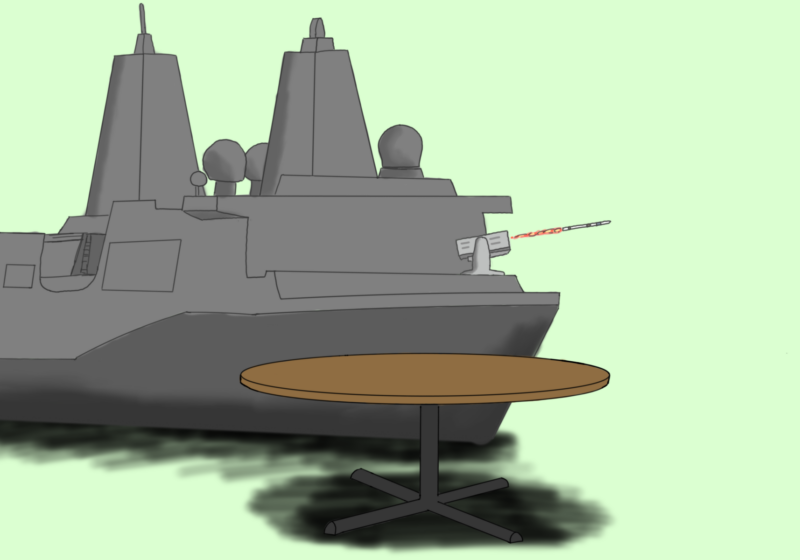The terrorist attacks of Sept. 11 shook the nation, throwing many Americans into confusion. The effects were even more disorienting to the 81 students who were part of UR’s Study Abroad programs.
The tragedy struck shortly after they had left the United States, before most got a chance to get used to their new foreign settings.
In London, senior Stephanie Beetle and junior Josh Blumenfeld found out the news via the radio.
“My initial reaction was disbelief. This has got to be a mistake, it’s not as serious as it sounds,” said Beetle, who arrived to London on Sept. 10 to intern for the Sawcett Society.
“We were just really, really confused. There was a lot of fear and nervousness about loved ones,” she said.
Beetle also felt there was a great deal of support from residents of London. “When people found out I was American, they would firmly grasp my shoulder and say, ‘I’m sorry.’ There was a lot of empathy,” she said.
Blumenfeld, who interned in the House of Commons of the British Parliament, recalled that “there was a controlled panic in the city. It was pretty eerie?we could tell something dramatic happened.”
“It’s sort of bizarre that something like this brought [the international students] together,” he said. “Everyone was extremely friendly and supportive in our group.”
Beetle and Blumenfeld said they felt it was frustrating to not have access to American media coverage of developing events.
Beetle found the perspective of the British press quite different from American press. “The basis, on which I saw it was dealt with, was very logical, very reserved, very removed?just British,” she said.
“One of the biggest concerns for the British government and people was knowing what was going on before taking action against [anyone]. They wanted a lot more certainty as to who did it.”
It was dinnertime in Cairo, Egypt when junior Whitney Barnabe found out the news. He had just finished his classes for the day at the American University in Cairo.
Barnabe saw the World Trade Center towers collapse in a CNN broadcast shown in the school’s cafeteria. He found everyone around him very sympathetic.
“The people in Cairo were amazing ?very regretful, very comforting,” he said. “It was amazing to have random people offer us gratitude.”
The student union of his university organized a vigil for those who perished in the attacks. Classes were cancelled for almost a week.
Right after the attack, “we all got e-mails from the [U.S.] Embassy telling us not to make ourselves look like foreign tourists, or travel in huge groups,” he said.
After U.S. retaliation was launched in Afghanistan, Americans worldwide increasingly feared being the victims of anti-U.S. backlash. Barnabe considered Cairo to be a relatively safe city for him. “There are many armed guards about,” he said. “It was safe to get around even late at night.”
Junior Maureen Quinn’s experience in Santiago, Chile, was more confusing. Quinn found it difficult to follow the news programs, which were only available in Spanish.
Not being fluent in the language, she had to rely on her host family to make sense of the events.
Quinn was impressed with the compassion of the people she met. “They were very sympathetic, concerned, and caring,” she said.
In spite of Sept. 11, Jackie Levine, Assistant Dean and Director of the Center for Study Abroad, hopes that there is much to be learned from the terrorist attacks.
“What we tried to do was turn Sept. 11 into an educational opportunity?to underscore that [studying abroad] wasn’t tourism,” she said.
Levine explained that many students are unprepared for the culture shock. “Students have no concept of how multicultural Europe is,” she said. The center has taken steps to increase preparedness in case of emergencies.
Despite the events of Sept. 11, no serious incidents occurred to study abroad students during the fall 2001 semester, and the study abroad program has not suffered a significant loss of student interest.
Uzilov can be reached at
auzilov@campustimes.org.



